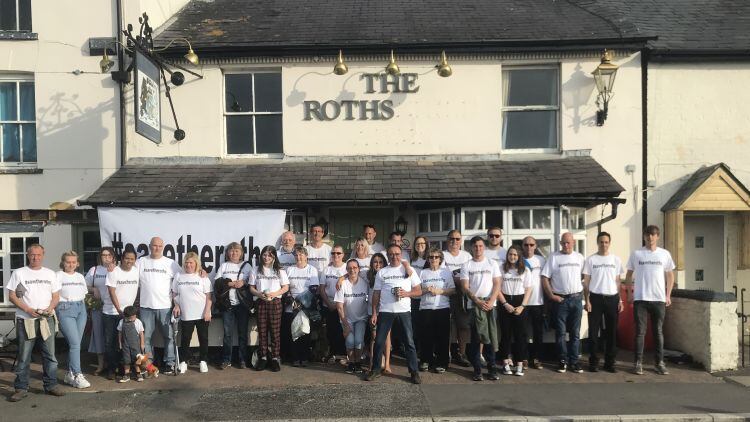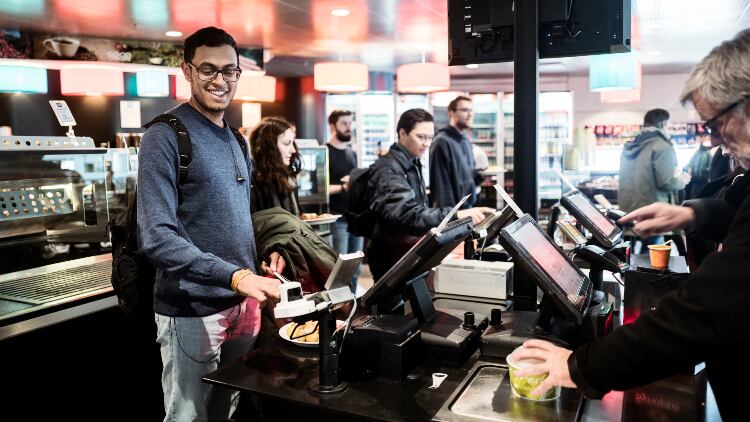Cunningham’s comments follow the launch of the £30m UK-wide Rural Connected Communities competition by digital secretary Nicky Morgan, which will see up to 10 locations chosen to run trials of 5G applications and stimulate commercial investment in the next generation of mobile internet connectivity.
The funding will build on existing rural projects, such as the use of 5G in in the Orkney Islands to remotely monitor salmon fisheries and improve efficiency of wind farms, as well as other uses of 5G in rural communities to help drive business growth, enhance lives and encourage innovation.
What’s more, the Government has committed to extending 4G mobile coverage to 95% of the UK to ensure continuous mobile connectivity is provided on all major roads. According to Country Land and Business Association deputy president Mark Bridgeman, only 67% of the UK can access a “decent” mobile signal at present.
Broadening pub appeal
Long Live the Local’s programme director David Cunningham explained the Government’s continued commitment to 5G can have positive knock-on effects for pubs.
“With many pubs under pressure from a range of financial pressures, the rollout of 5G to rural areas, could provide an opportunity for pubs,” he said.
“People want and need to have reliable and fast internet connection for both their social and business lives. Increasingly people are working flexibly in terms of the hours and places they work.
“Some pubs have already started to position themselves as places where you can drop in and work while enjoying some food and a drink.
“In many rural locations, sometimes the pub is the only ‘public’ space, so the more this space can be adapted to meet the needs of the community it serves, the more chance it will have to survive and thrive.
“The rollout could bring in new customers who want and need fast and reliable internet connections for tele-working as well as potentially those who use the internet for entertainment and their social lives – a pub with a warm welcome, great food and drinks and fast and reliable Wi-Fi would be appealing for many pubgoers and non-pubgoers alike.”
What’s more, tech and media industry analyst Paolo Pescatore adds: “This is great news for local communities, households and businesses alike who have been deprived of fast and reliable connections for years.
“People’s insatiable appetite for data and the need to be connected will continue to proliferate. Individuals, as well as well families, should benefit from better connectivity inside pubs and in the gardens to share experiences.”
Hospitality not limited to London
Kate Nicholls from UKHospitality added: “In an ever-more digital world, the need for mobile connectivity and digital platforms are essential in being able to run and maintain businesses effectively and efficiently.
"Hospitality and tourism are not limited to London and the major cities of the UK, so to extend mobile connectivity to rural areas is an absolute must in helping to create a fair operating environment that enables all operators to thrive.
“We live in the age of social currency, where consumers want to share their experiences and with added connectivity there is more freedom to share and post – a benefit to the overall experience of the consumer but also great for showcasing some of the fantastic tourist and hospitality offerings across the UK.
"From seaside towns to the countryside, it is vital that we avoid disadvantages dictated by geography for any and all businesses.”
Hotbed of pioneering industries
The Rural Connected Communities competition is the latest phase of £200m funding to create 5G testbeds across the country and deliver the benefits of faster mobile connectivity.
Discussing the growth of 5G technology in rural areas, digital secretary Nicky Morgan explained: “The British countryside has always been a hotbed of pioneering industries and we’re making sure our rural communities aren’t left behind in the digital age.
“We’re investing millions so the whole country can grasp the opportunities and economic benefits of next generation 5G technology.
“In modern Britain people expect to be connected wherever they are. And so we’re committed to securing widespread mobile coverage and must make sure we have the right planning laws to give the UK the best infrastructure to stay ahead.”




